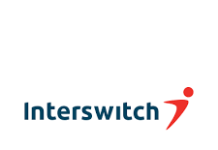Nigeria can create digital economy through digital infrastructure and innovation, says the United Nations-based Better Than Cash Alliance (BTCA).
In a recently released research report entitled: “Accelerators to an Inclusive Digital Payments Ecosystem”, BTCA says that Nigeria can become truly cashless by embracing digitisation of payments.
The research, which was based on 25 countries including Nigeria, is coming just as the McKinsey Global Institute released projections that digital finance could lead to a $3.7 trillion GDP boost by 2025, create 95 million new jobs across all sectors, and save $110 billion annually in leakages in emerging countries.
The report also identified obstacles currently lined up on the way of digitisation by a country such as Nigeria. These hurdles include the lack of a broader analytical framework that applies to both governments and companies.
“A range of studies have demonstrated that moving from cash to digital payments can boost productivity and economic growth, improve transparency, increase tax revenues, expand financial inclusion, and open up new economic opportunities, particularly for women and disadvantaged communities”, the report continues.
The report notes that although many developing and emerging markets are aware of the positive impact of digital economies, they have not developed a workable framework for reaping the full benefits accruable from it.
“The reality is that despite the evidence about what creating digital economies means, until now there hasn’t been a coherent and tailorable framework available to governments and companies about how to realize these gains. This is partly because knowledge about digital payments has been highly fragmented. The lack of a broad and cohesive analytical framework has prevented governments and companies from leveraging the experiences of other markets and players to implement digital payments most effectively”, adds the report.
Findings from the report reveal that: “…many stakeholders still struggle to understand what further actions can be taken to promote cashless economies. Many of these actions require coordination among a mix of players: national and subnational governments, central bank authorities, banks, telecommunication companies, retailers and other businesses, and consumers. Unfortunately, the lack of a coherent analytical framework prevents stakeholders from learning from the experience of other markets”.
Despite the identified obstacles, the report notes that there are a number of activities, which the Nigerian Government can take to increase usage and adoption of digital payments. These activities, which it calls accelerators, include promoting merchant acceptance infrastructure across Micro, Small and Medium Enterprises (MSMEs).
Others include Leveraging existing networks or platforms to deliver digital payment products and services, establishing a shared digital infrastructure for players, establishing interoperability, and developing a unique identification programme.
Furthermore, the government can accelerate its speed on the journey to digital economy by identifying and digitising routine use cases, and by digitising government payments and receipts. Establishing regulation that promotes innovation in the digital payments ecosystem while promoting responsible practices and implementing policies that incentivize and improve the convenience of digital payments are the other steps that the government should take in order to realise the full benefits of digital economy.
The Better Than Cash Alliance is a partnership of governments, companies, and international organizations that accelerates the transition from cash to digital payments in order to reduce poverty and drive inclusive growth.












